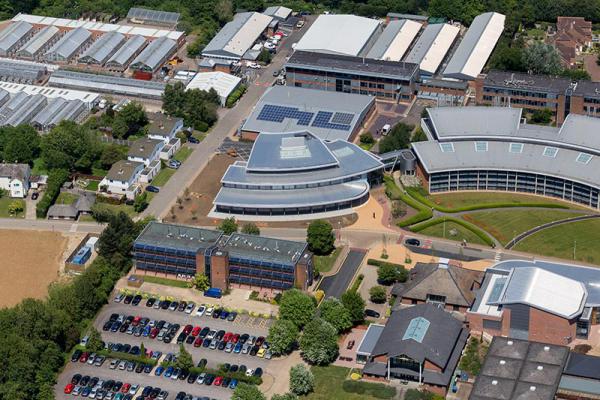Rothamsted to receive £60m to help push agricultural research

Rothamsted Research will receive more than £60m in new funding to help spearhead important agricultural and food security research.
The Biotechnology and Biological Sciences Research Council (BBSRC) has announced it is going to fund strategically important research at Rothamsted over the next five years.
The projects will centre around crop resilience, nutrition and health, food safety and food security, with a focus on more sustainable farming.
In recent years, the Hertfordshire-based institute's research has paved the way for high fibre white bread, and has helped create soil maps for every field in Africa.
Research from the institute has led to Europe’s first trial of a genome edited wheat that helps tackle cancer.
Researchers at Rothamsted have also helped find ways of reducing emissions associated with livestock grazing
Professor Angela Karp, chief executive of Rothamsted, said the funding would significantly enhance the institute’s capability to deliver its "world-leading research".
She said: “This investment from BBSRC is a real show of confidence in Rothamsted and our ability to provide solutions to some of the greatest challenges facing society.
“We look forward now to even bigger breakthroughs over the next five years as we prepare for the very great challenges ahead – the global population is growing, its resources are dwindling, and there will be no hiding places from the ravages of climate change.
“Whether it’s breeding drought resistant crops or engineering plants to act as mini factories, our researchers are urgently seeking the solutions that will ensure the world’s food supply for decades to come.”
Food poverty and food security are currently high on the international agenda, and making sure all nations, regardless of wealth, have access to the best quality foods is vital, she added.
“Underpinning all of this is the imperative to grow food in harmony with the world – by tackling pests and diseases without pesticides; to keep yields up without the use of man-made fertilisers; and by recruiting allies - from trees to insects – to help out our farming systems.”
The investment comes following a major review of the institute research programmes BBSRC funds - and is carried out every five years.








